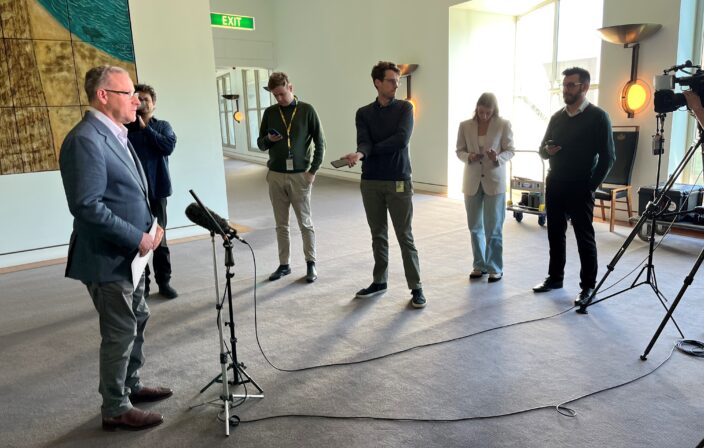Weak start to year for manufacturers, ACCI-Westpac survey finds
25 Mar 2024
|Media Release

New orders lodged with Australian manufacturers have fallen to levels last seen during the Global Financial Crisis, excluding the 2020 lockdown period, the latest ACCI-Westpac Industrial Trends survey has found.
Westpac senior economist Andrew Hanlan said that manufacturers experienced a particularly weak start to the 2024 year, as conditions deteriorated from an already soft end to 2023.
“The Westpac-ACCI Actual Composite weakened in the opening quarter of 2024, shifting down from a break-even mark of 50.1 at the end of 2023, to a reading of 43.1,” Mr Hanlan said.
“That sub-50 result suggests that conditions in the manufacturing sector deteriorated in the period. The March quarter survey reported a decline in new orders, a fall in output, a reduction in overtime and a material downsize to employment.
“The mood of manufacturers about the general business outlook for the next six months moved deeper into pessimistic territory. Those expecting a deterioration shifted from a net 41 per cent to a net 56 per cent.
“New orders weakened from already soft results for the past three quarters, when they were broadly flat, to an outright decline. In the March quarter, a net 13 per cent of respondents reported a decline in new orders. Falling new orders speaks to the combined impact of soft underlying demand and an apparent slower than usual return to business from the summer holidays.
“This is the largest share of respondents reporting declining new orders since the GFC (excluding the 2020 COVID-19 lockdown), albeit it is well above the GFC low of –37 per cent.
“Official data confirmed that domestic demand all but stalled at the end of 2023, led by consumer spending softness as household incomes were squeezed by high inflation, higher interest rates and additional tax obligations.
“The Expected Composite Index improved to 54.9, up from 52.4 the period prior.
“The March quarter weakness in new orders was likely exaggerated by a slower than usual return from summer holidays. A net 13 per cent anticipate new orders will rise next quarter. However, this is coming from a low base following the significant decline in the March quarter, pointing to only a modest increase in output over the first half of 2024.
“That said, expectations have been over-optimistic for the past three quarters. Whether that over-optimism is also boosting the latest result is a key source of uncertainty in the current soft economic environment.
“Cost pressures facing manufacturers, while still elevated, are trending down from recent historic highs. This is alongside the softening of demand. The number of respondents reporting a rise in average unit costs moderated from a net 60%, on average for the past two years, to a net 29 per cent in March.
“Profit expectations weakened further. The number of respondents expecting a decline over the next year deteriorating from a net 4 per cent to a net 11 per cent, speaking to the ongoing challenging backdrop for the sector. A pivot towards to less contractionary macro policy settings, which is expected to emerge mid-year, would be welcomed by the sector.
ACCI chief executive officer Andrew McKellar said wages were the most significant cost pressure on manufacturers.
“Forty per cent of businesses surveyed expected the next wage agreement to deliver an outcome above the last,” Mr McKellar said.
“With the Annual Wage Review currently underway, ACCI is of the view that another large increase in minimum and modern award wages, untethered to productivity, could delay the expected decline in inflation.
“ACCI believes that the challenges for businesses will be compounded by inflexible, productivity-sapping industrial relations legislation recently passed by Parliament.
“In the upcoming budget, ACCI urges the government to do more to address the cost of doing business to ensure businesses remain viable.”


